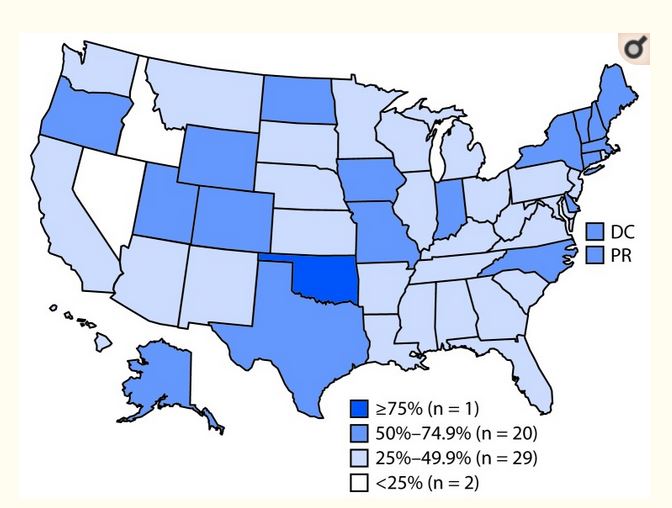To assess tobacco-related policies and practices in mental health and substance abuse treatment facilities in the United States (including Puerto Rico), the Centers for Disease Control and Prevention and the Substance Abuse and Mental Health Services Administration analyzed data from the 2016 National Mental Health Services Survey and the 2016 National Survey of Substance Abuse Treatment Services.
A comprehensive effort to reduce tobacco-related disparities among persons with behavioral health conditions includes clinical cessation interventions, as well as population-level measures to reduce the appeal, accessibility, and social acceptability of tobacco use outside the clinical context. Proven interventions—including raising tobacco prices, implementing comprehensive smoke-free laws, conducting media campaigns, and providing barrier-free access to proven cessation treatments—are critical to reduce smoking-related disease and death in the United States.
HIGHLIGHTS
Tobacco-related policies and practices in mental health treatment facilities, 2016
- 48.9% reported screening patients for tobacco use.
- 37.6% offered tobacco cessation counseling.
- 25.2% offered nicotine replacement therapy.
- 21.5% offered non-nicotine cessation medications.
- 48.6% had a smoke-free campus policy.
Tobacco-related policies and practices in substance abuse treatment facilities, 2016
- 64.0% reported screening patients for tobacco use.
- 47.4% offered tobacco cessation counseling.
- 26.2% offered nicotine replacement therapy.
- 20.3% offered non-nicotine cessation medications.
- 34.5% had a smoke-free campus policy.
To read the full article, download it here.
